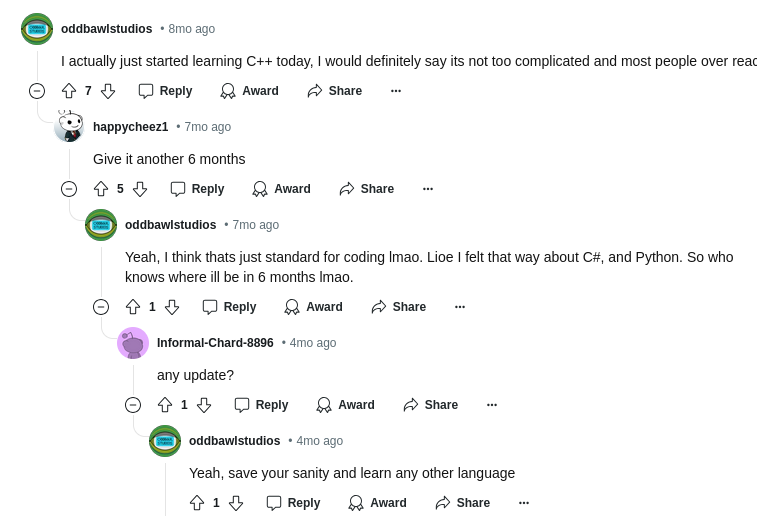Disclaimer: I actually like C++ the language, I'm reasonably comfortable with it and enjoy it as an upgrade from C. I don't use much OOP stuff as I'm writing a game using the flecs ECS. So things like abstract classes are mostly absent from my codebase.
What has been driving me up the wall the last month has been build systems and dependencies: don't get me wrong; meson is great but the problem is not everyone uses meson. All I want to do is add some library built with cmake as a dependency without needing to rewrite the build system or install it on my OS. Apparently that is too much to ask!
I'm seriously considering dropping everything and jumping to Rust because of Cargo. Yes I've tried setting up conan but not having much fun since the recipes are all third party and out of date anyways




 where n is the total number of cards. For large n, c converges to n*log(n). That is, for n = 52, it can reasonably be expected that all 52 cards will be observed only after about 236 turns! The problem is further exacerbated because a fraction of the images obtained in an SFX experiment will be blank because the X-ray pulse did not hit a crystal. This fraction varies depending on the sample preparation and delivery methods (see Chaps. 3–5), but is often higher than 60%. The random orientation of crystals and the random picking of this orientation on every measurement represent the primary reasons why SFX data volumes are inherently larger than rotation series data.
where n is the total number of cards. For large n, c converges to n*log(n). That is, for n = 52, it can reasonably be expected that all 52 cards will be observed only after about 236 turns! The problem is further exacerbated because a fraction of the images obtained in an SFX experiment will be blank because the X-ray pulse did not hit a crystal. This fraction varies depending on the sample preparation and delivery methods (see Chaps. 3–5), but is often higher than 60%. The random orientation of crystals and the random picking of this orientation on every measurement represent the primary reasons why SFX data volumes are inherently larger than rotation series data.